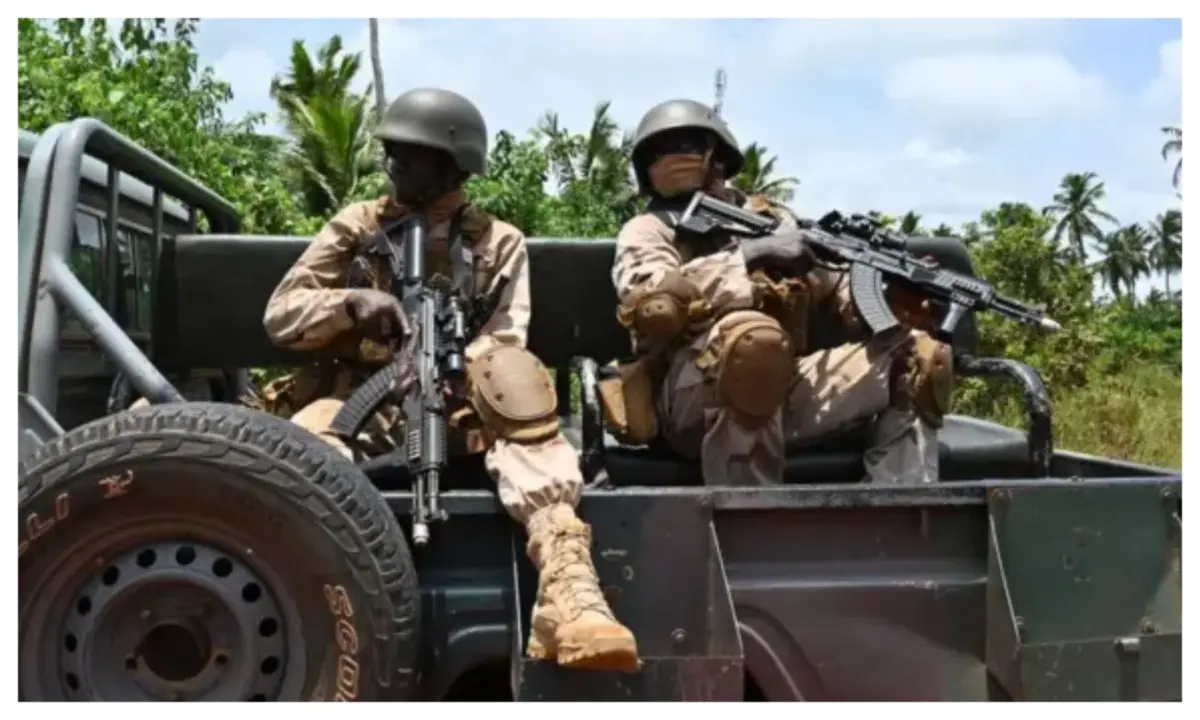In recent operations spanning Nigeria’s North East and other regions, the Nigerian Army reports significant advances against terrorist groups, with security forces eliminating three prominent commanders and 16 additional militants. Military sources, speaking to the News Agency of Nigeria, identified the neutralized commanders as Modu Dogo (known as Munzir of Dogon Chukun), another unidentified Munzir, and Abu Aisha Qaid associated with Tumbun Mota. These efforts are part of broader security measures aimed at curbing insurgency and restoring peace across parts of northern Nigeria and neighbouring states.
Major Security Operations Across the Country
According to information from the Army Headquarters, operations led to the arrest of 26 suspects and the rescue of multiple kidnap victims. Security personnel also recovered a substantial cache of weapons, 109 rustled cattle, and various logistics materials previously in the hands of insurgents. The military notes that these commanders were killed after intense encounters in Borno and Adamawa States, significant battlegrounds in the ongoing fight against extremism.
Among the recovered items were an AK-47 rifle, several magazines, 25 rounds of 7.62mm special ammunition, an anti-aircraft link, 14 motorcycles, seven blankets, and a mobile phone reportedly belonging to the militants. One particularly notable arrest included a logistics supplier and informant, who had been aiding terrorists for over four years and was apprehended near Kukawa Local Government Area, Borno State.
Operations Beyond the North East: Integrated Efforts in Other Zones
In addition to successes in the Northeast, coordinated efforts have extended to other geopolitical zones. In the North West, troops under Operation FANSAN YAMMA rescued two kidnap victims during operations in Sabon Birni Local Government Area of Sokoto State. Security forces have maintained an active presence in Katsina, Zamfara, and Kebbi, conducting patrols, confiscating cash and mobile phones, and working to deter further attacks on rural populations.
North Central: Crackdown on Criminal Activity
Operation MESA in Kogi State led to the arrest of a suspected kidnapper in Yagba Local Government. The Army source reported that the suspect was neutralized while attempting to escape from custody, highlighting the high-risk environment and the military’s zero-tolerance approach. Further ambush operations along the Okehi–Kabba forest axis resulted in two more terrorists killed, though others managed to flee with injuries. In Lokoja, troops also neutralized an extremist identified as a spiritual leader for militant groups.
Plateau State: Responding to Communal Attacks
Security challenges persist in the North Central region, where troops engaged insurgents in Wase and Kanam Local Government Areas of Plateau following the abduction and murder of a traditional leader. During one such operation, criminals who had rustled 109 cattle in Kanam fled as soldiers arrived, abandoning the livestock, which was subsequently returned to its lawful owners.
In Benue and Taraba, Operation Whirl Stroke security personnel also neutralized two armed insurgents and robbers, recovering additional weaponry used in recent attacks.
Spotlight on the South East: Cracking Down on Separatist Groups
In the South East, security efforts have focused on targeting high-profile figures within IPOB and ESN-affiliated groups. Troops operating under Operation UDO KA apprehended Akachukwu Alaka, alias Akanna, described as a significant criminal figure, during a sting operation in Awka South Local Government, Anambra State.
Meanwhile, in Okigwe Local Government Area of Imo, troops raided a hideout believed to belong to Ifeanyi Eze Okorienta, also known as Gentle de Yahoo—a notorious leader linked to violent acts. Although key targets managed to evade capture, security forces seized a pistol, 145 rounds of ammunition, multiple phones, and uniforms belonging to security agencies, alongside a Biafran insignia.
A subsequent sweep of the area uncovered a workshop used for dismantling stolen vehicles, which was destroyed, and ten motorcycles used in attacks were set ablaze. Security personnel also successfully disposed of two improvised explosive devices (IEDs) planted by IPOB/ESN elements in Njaba Local Government Area, ensuring no casualties occurred during the process.
Security in the South South and Ongoing Anti-Crime Efforts
Elsewhere, in the South South, troops under Operation Delta Safe partnered with the NDLEA to arrest 21 suspected drug traffickers in Bayelsa State during a targeted raid, seizing significant quantities of illicit substances. In Rivers State, further investigations uncovered illegal refineries, resulting in the apprehension of suspected bunker operators, the neutralization of another, and the destruction of several makeshift storage pits loaded with refined petroleum products. These actions are part of broader anti-bunkering and drug enforcement mandates.
Leadership Response and Troop Morale
The Chief of Army Staff, Lt.-Gen. Olufemi Oluyede, has publicly recognized the gallantry, discipline, and professionalism of troops across all theaters of operation. He has called on military personnel to sustain efforts and maintain the operational tempo needed to defeat criminal networks and restore security throughout the country.
Local Perspectives on Security Gains and Remaining Challenges
While many residents in affected communities have welcomed reports of successful rescues and the arrest of criminal elements, security analysts note that persistent instability in some areas warrants ongoing vigilance. “Tackling insecurity requires both military force and community engagement,” says Aisha Liman, a civil rights advocate in Maiduguri. “Returning stolen livestock is only the first step—support for displaced families and accountability for local collaborators will be key to lasting stability.”
Many local observers also highlight the broader humanitarian impact of insurgency, noting the disruption to rural livelihoods and the ongoing challenge of resettling displaced persons across the Northeast and Plateau regions. The return of recovered cattle, for example, is a positive sign for local economies and food security, but further efforts are needed to rebuild trust and infrastructure in communities long threatened by violence.
Broader Implications for Nigeria and the West African Subregion
Nigeria’s multi-pronged counterinsurgency operations resonate beyond its borders, as neighboring countries in the Lake Chad Basin—such as Chad, Cameroon, and Niger—confront similar threats. Regional cooperation and intelligence sharing remain critical for lasting success against sophisticated and mobile terrorist groups. Experts caution, however, that as militants come under pressure in one area, they often attempt to regroup or shift operations elsewhere, necessitating a coordinated and persistent response at the national and sub-regional levels.
Efforts to intercept arms trafficking, disrupt illicit finance, and strengthen border controls have grown increasingly important, with the Economic Community of West African States (ECOWAS) and African Union lending support for joint initiatives. “What happens in Borno or Zamfara can influence the security situation across the region,” explains regional security consultant Emmanuel Tchatchoua. “No country can go it alone—our collective response must be smarter, not just stronger.”
Looking Ahead: Sustaining Momentum Against Threats
While the Nigerian Army’s recent report signifies important progress, experts urge continuity and transparency in reporting, independent verification of military claims, and renewed focus on civilian protection and post-conflict reconstruction. Calls for more integrated strategies involving local communities, traditional leaders, and credible civil society organizations are growing. As many Nigerians look ahead, the hope remains for safer roads, more stable rural economies, and the eventual conclusion of armed hostilities in places that have been shaped by over a decade of conflict.
How do these security operations impact daily life in your community? Are there areas where you feel more or less safe? Share your experiences, opinions, or insights below—and let’s continue this important conversation together.
Have a story to share or sell? If you’ve witnessed newsworthy events or have insights on local security, we want to hear from you! Send your story proposals, eyewitness accounts, or tips to story@nowahalazone.com—your voice matters.
Need support or want to share your opinion on this topic? Reach us at support@nowahalazone.com.
Follow us for regular updates on Facebook, X (Twitter), and Instagram—join the community and make your voice part of the conversation!










